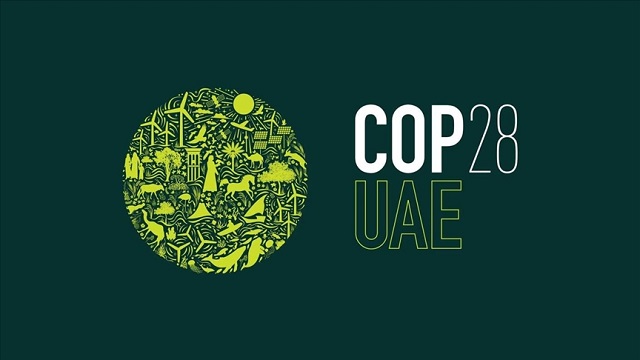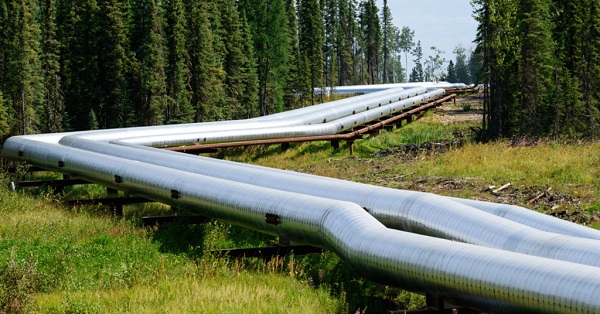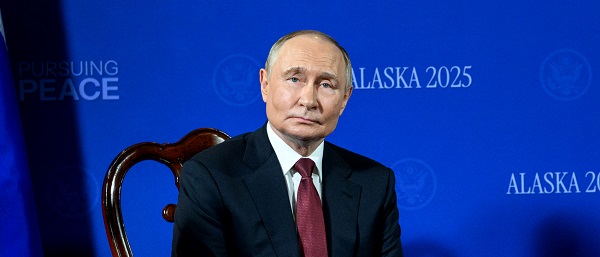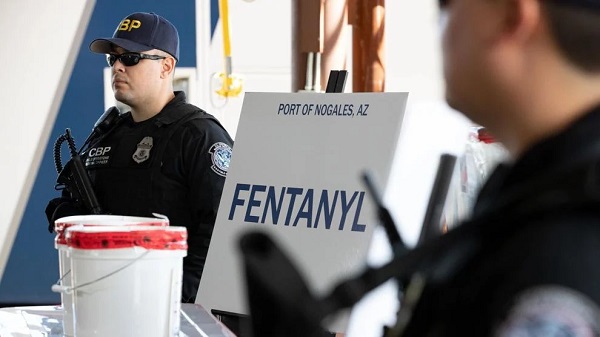Dan McTeague
COP28 – The grand delusion continues

From Canadians for Affordable Energy
 Written By Dan McTeague
Written By Dan McTeague
The 28th UN Climate Change Conference (COP28) wrapped up this week in Dubai. That the two-week conference, whose object is to discuss the global phase-out of fossil fuels, is being held in one of the world’s top ten oil producers — the UAE — is only the first of COP’s absurdities.
The next is the sheer number of participants — more than 97,000 of them — flying to the desert, in most cases on the taxpayers’ dime, to talk about reducing carbon emissions in the hopes of cooling the planet.
The hyperbole from people such as Mary Robinson, former president of Ireland, who said those at COP28 “are steering the course of our shared future but the science tells us we are in grave danger of bequeathing our children a completely unlivable world” is almost too much to bear.
And what did they actually accomplish? As has been the case for the past 27 conferences, very little. While there is a lot of grandstanding and speeches and promises from the 157 countries in attendance to phase out fossil fuels, no commitments were actually made.
Surely this comes as no surprise since all of the nations present run on fossil fuel users and have no real intention of abolishing them, especially not countries such as Saudi Arabia, China and India. There is no scenario where they would “phase out” the life blood of their economies for the sake of the quixotic goal of achieving Net Zero emissions so as to — maybe — reduce global temperatures by 1.5 degrees.
And as if to make the farce even more laughable, it has been announced that Azerbaijan will be the host for COP29. Oil, gas and related petroleum products account for 91% of Azerbaijan’s total exports. Is it at all likely that they will be getting rid of them anytime soon? Definitely not.
As was recently noted by Benny Peiser of Net Zero Watch, COP28 is happening while the Green Agenda is in deep crisis and is falling apart around the world.
- There is a massive backlash against the cost of Net Zero policies. Renewable energy projects have been scrapped including major wind projects in the US and the UK.
- Electric vehicle sales have slumped.
- Germany is facing an energy crisis, frantically bringing coal fired plants back into service to replace the energy lost when they shuttered their nuclear plants for nebulous environmental reasons.
- The Dutch Farmers party has made major gains in two successive elections after their environmentalist government in their obsession to achieve net zero tried to restrict them out of existence.
- Argentina has elected a new president who has called climate change a “socialist lie.” Even French President Emmanuel Macron is calling for the EU to pump the breaks on net zero regulations.
Why? Because net zero policies are unpopular and damaging. It is all well and good to talk about targets and goals and objectives, but when rubber hits the road and daily lives are affected, that’s another story. People have come to see that pursuing these absurd policies comes at an enormous societal and economic cost.
If a country wants affordable, reliable power to keep the lights on and heat their homes, they need the baseload power that oil and natural gas provide.
Yet here in Canada the Trudeau government is doubling, no, tripling down on their punishing Net Zero Agenda.
Our environmental minister Steven Guilbeault even used COP28 as his stage to make two major regulatory announcements that will have a devastating effect on the Canadian economy.
Last week, he announced his methane emissions reduction plan and an emissions cap, without even consulting the leader of the province it would affect the most. Give me a break. The grandstanding, the virtue signaling — it would be laughable if it weren’t so damaging.
Canadians can’t afford groceries or pay their rent or buy homes. We are suffering an affordability crisis. The relentless taxation on our lives from a carbon tax to a second carbon tax (the Clean Fuel Standard), to Minister Guilbeault’s newest schemes, are all part of the Net Zero policies that are destroying our economy.
Remember this is all fuelled by the preposterous notion we can somehow affect the climate if we reduce our greenhouse gases from 1.4% of global emissions to 0.4%.
In light of all of that, the Trudeau government is more interested in how they are perceived on the world stage than how their policies affect the Canadians they are supposed to represent.
Danielle Smith and Scott Moe, to their credit, attended the conference with their own Alberta and Saskatchewan delegations to advocate for the industry that employs thousands of Canadians and is a major driver of the Canadian economy.
And, it should be taken as a compliment that Alberta was even given the “Fossil of the Day” award by activists at the summit for its temporary ban on large scale renewable projects.
At least Canada had a few representatives there with its best interest in mind, and that weren’t taken in by the grand delusion.
Dan McTeague
Will this deal actually build a pipeline in Canada?

By Dan McTeague
Will Carney’s new pipeline deal actually help get a pipeline built in Canada? As we said before, the devil is in the details.
While the establishment and mainstream media cheer on the new pipeline agreement, there are specific details you need to be aware of.
Dan McTeague explains in his latest video.
Business
Liberal’s green spending putting Canada on a road to ruin

Once upon a time, Canadians were known for our prudence and good sense to such an extent that even our Liberal Party wore the mantle of fiscal responsibility.
Whatever else you might want to say about the party in the era of Jean Chrétien and Paul Martin, it recognized the country’s dire financial situation — back when The Wall Street Journal was referring to Canada as “an honorary member of the Third World” — as a national crisis.
And we (remember, I proudly served as Member of Parliament in that party for 18 years) made many hard decisions with an eye towards cutting spending, paying down the debt, and getting the country back on its feet.
Thankfully we succeeded.
Unfortunately, since then the party has been hijacked by a group of reckless leftwing fanatics — Justin Trudeau and his lackeys — who have spent the past several years feeding what we built into the woodchipper.
Mark Carney’s finally released budget is the perfect illustration of that.
The budget is a 400 page monument to deficit delusion that raises spending to $644.4 billion over five years — including $141.4 billion in new spending — while revenues limp to $583.3 billion, yielding a record (non-pandemic) $78.3 billion shortfall, an increase of 116% from last year.
This isn’t policy; it’s plunder. Interest payments alone devour $55.6 billion this year, projected to hit $76.1 billion by 2029-30 — more than the entire defence budget and rising faster than healthcare transfers.
We can’t discount the possibility that this will lead to a downgrade of our credit rating, which will significantly increase the cost of borrowing and of doing business more generally.
Numbers this big start to feel very abstract. But think of it this way: that is your money they’re spending. Ottawa’s wealth is made up entirely of our tax dollars. We’ve entrusted that money to them with the understanding that they will use it responsibly. In the decade these Liberals have been in power, they have betrayed that trust.
They’ve pursued policies which have made life in Canada increasingly unaffordable. For example, at the time of writing it takes 141 Canadian pennies (up from 139 a few days ago) to buy one U.S. dollar, in which all of our commodities are priced. Well, that’s .25 cents per litre of gasoline. Imagine what that’s going to do to the price of heating, of groceries, of the various other commodities which we consume.
And this budget demonstrates that the Carney era will be more of the same.
Of course, the Elbows Up crowd are saying the opposite — that this shows how fiscally responsible Mark Carney is, unlike his predecessor. (Never mind that they also publicly supported everything that Trudeau did when he was in government.) They claim that Carney shows that he’s more open to oil and gas than Trudeau was.
Don’t believe it.
The oil and gas sector does get a half-hearted nod in the budget with, for instance, a conditional pathway to repeal the emissions cap. But those conditions are important. Repeal is tied to the effectiveness of Carney’s beloved industrial carbon tax. If that newly super-charged carbon tax, which continues to make our lives more expensive, leads to government-set emissions reductions benchmarks being met, then Ottawa might — might — scrap the emissions.
Meanwhile, the budget doubles down on the Trudeau government’s methane emissions regulations. It merely loosens the provisions of the outrageous Bill C-59, an act which should have been scrapped in its entirety. And it leaves in place the Trudeaupian “green” super structure, which has resource sector investment, and any business that can manage it, fleeing to the U.S.
In these perilous times, with Canada teetering on the brink of recession, a responsible government would be cutting spending and getting out of the way of our most productive sectors, especially oil and gas — the backbone of our economy.
It would be repealing the BC tanker ban and Bill C-69, the “no more pipelines act,” so that our natural resources could better generate revenue on the international market and bring down energy rates at home.
It would quit wasting millions on Electric Vehicle charging stations; mandating that all Canadians buy EVs, even with their elevated cost; and pressuring automakers to manufacture Electric Vehicles, regardless of demand, and even as they keep closing up shop and heading south.
But in this budget the Liberals are going the opposite direction. Spend more. Tax more. Leave the basic Net-Zero framework in place. Rearrange the deck chairs on the Titanic.
They’re gambling tomorrow’s prosperity on yesterday’s green dogma, And every grocery run, every gas fill-up, every mortgage payment will serve as a daily reminder that we are the ones footing the bill.
Once upon a time, the Liberals knew better. We made the hard decisions and got the country back on its feet. Nowadays, not so much.
-

 Censorship Industrial Complex2 days ago
Censorship Industrial Complex2 days agoDeath by a thousand clicks – government censorship of Canada’s internet
-

 Alberta2 days ago
Alberta2 days agoSchools should go back to basics to mitigate effects of AI
-

 International2 days ago
International2 days agoAt Least 15 Killed In Shooting Targeting Jewish Community At Australia’s Bondi Beach, Police Say
-

 Daily Caller2 days ago
Daily Caller2 days agoChinese Billionaire Tried To Build US-Born Baby Empire As Overseas Elites Turn To American Surrogates
-

 Great Reset2 days ago
Great Reset2 days agoViral TikTok video shows 7-year-old cuddling great-grandfather before he’s euthanized
-

 Business2 days ago
Business2 days agoMajor tax changes in 2026: Report
-

 International2 days ago
International2 days agoRussia Now Open To Ukraine Joining EU, Officials Briefed On Peace Deal Say
-

 Crime1 day ago
Crime1 day agoTrump designates fentanyl a ‘weapon of mass destruction’




